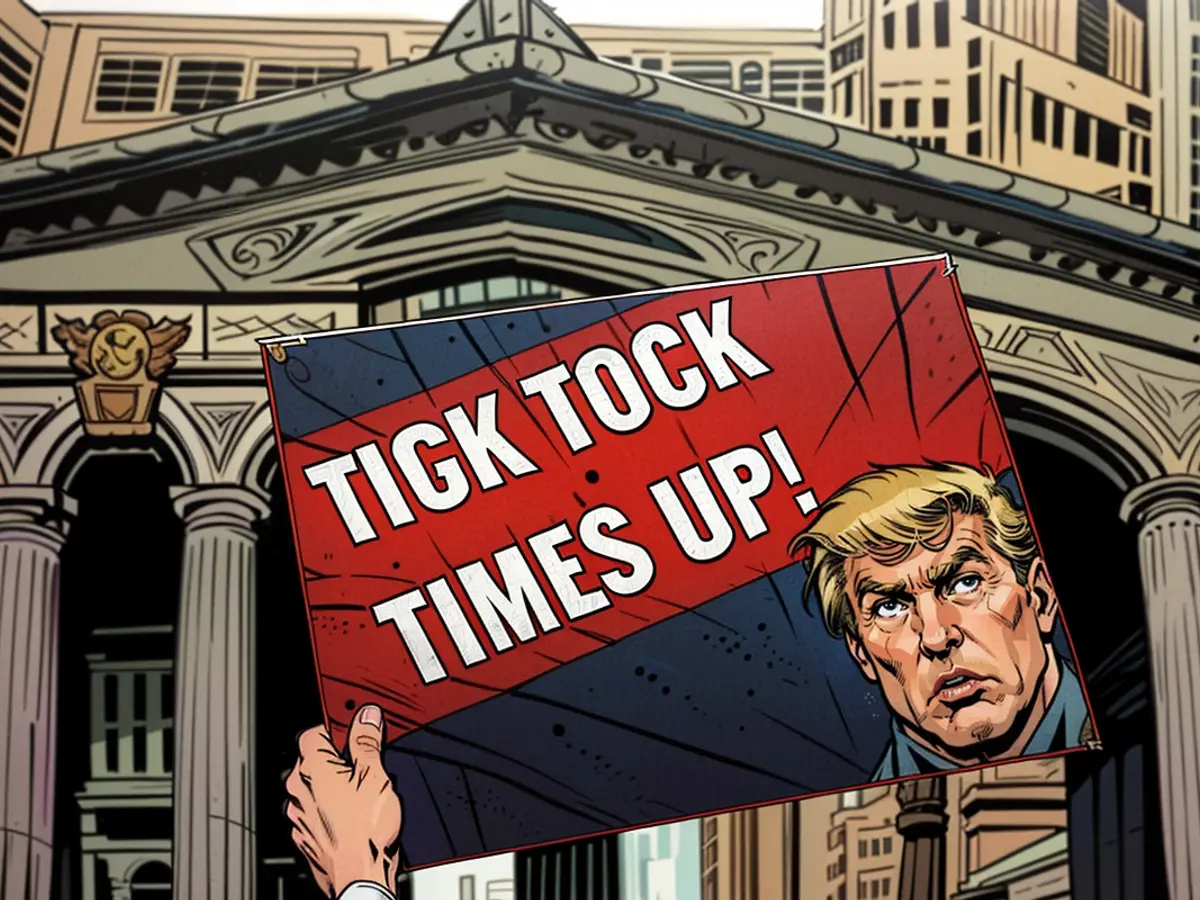If Donald Trump fails in his re-election bid, the judicial system would presumably delay making a decision.
Two weeks before the election, Trump's legal team scored a significant victory: no further judgments against their client till November 5. While Trump revels in victory speeches and casually chucking fries at McDonald's, it's easy to forget that the ex-US president is embroiled in numerous legal battles. For the first time in US history, a felon, Donald Trump, might make his way to the White House.
To divert attention from the trials, his defense has strategically delayed their resumption. The groundbreaking Supreme Court ruling in July played a crucial role. For the first time, the court granted certain presidential actions immunity from the law. This was a triumph for Trump: as a former president, he enjoys complete immunity for all official acts. However, the court's decision leaves room for ambiguity. The lower courts will ultimately decide which actions fall under the category of official acts and for which Trump could be legally held accountable. Until then, some trials remain in limbo or must be retried.
Capitol Siege
The most serious accusation against Trump is being tried in a federal court in Washington. In the two-year-old case, he's accused of inciting the violent storming of the Capitol in 2020, an attempt to disrupt the peaceful transfer of power. Special counsel Jack Smith presented new evidence in October, suggesting a months-long plot to obstruct the peaceful transition and tamper with election results.
Trump's lawyers tried to suppress Smith's evidence until after the election. However, Chief Judge Tanya Chutkan released thousands of pages of court documents in October, including hearing transcripts, speeches, and social media posts.
Due to the Supreme Court's immunity ruling, the prosecution revised the indictment on August 27, excluding charges deemed inappropriate by the Supreme Court.
Georgia Election Interference
Meanwhile, in Georgia, a key state in the 2020 election, Trump and 18 associates face trial. They're all charged with tampering with the vote count in the state to favor Trump. The television-worthy "mugshot" of Trump was taken at the Atlanta jail at the beginning of the trial last year. In May, the trial was delayed due to a conflict between prosecutor Fani Willis and her lead investigator, Nathan Wade. The Trump camp accused Willis of a conflict of interest and appealed. The oral argument is scheduled for December 5.
Hush Money Payment
In New York, the first criminal conviction against Trump was handed down in May. This was also the first time a former US president was convicted of a crime. In the trial over the concealment of hush money payments to porn star Stormy Daniels, the jury found Trump guilty on all 34 counts. If Trump is sentenced as per the law, he could face up to four years in prison.
Sentencing Delayed
The sentencing was initially scheduled for July. However, due to the Supreme Court's immunity ruling and Trump's lawyers' argument that the election could be biased, the next hearing is now scheduled for late November, a few weeks after the election. Last Monday, Trump's team also attempted to transfer the case from a state to a federal court. If successful, Trump could, in the event of an election victory, instruct the Department of Justice to drop the case.
Classified Documents in Florida
In Florida, federal prosecutors accuse Trump of storing classified government documents at his residence and private club in Mar-a-Lago and obstructing their return to government officials. On July 15, U.S. District Judge Aileen M. Cannon granted Trump's motion to stay the proceedings and ruled that the appointment of special counsel Jack Smith was unconstitutional. Smith appealed this decision. A date for an oral argument has not yet been announced.
Rape and Defamation
In May 2023, Trump was convicted in a civil court of sexual harassment. American author E. Jean Carroll accused Trump of raping her in the 1990s. Trump dismissed the columnist as a liar, leading her to file another lawsuit in 2022 for battery and defamation. The court dismissed the rape allegation but convicted Trump in a second trial for sexual abuse and defamation, ordering him to pay $83.3 million in damages. The verdict is final.
Defamation of the "Central Park Five"
Another lawsuit against Trump was filed in Philadelphia at the start of the week. This stems from a justice scandal in the 1990s. Five black and Latino men were convicted and later exonerated in connection with the rape and assault of a jogger in Central Park. Trump took out full-page ads in four newspapers calling for the reinstatement of the death penalty in New York. In a September 2021 TV debate with Kamala Harris, he claimed that the group had confessed to the crime and that someone had died in the attack. The men, also known as the "Exonerated Five," filed a lawsuit for "false and defamatory statements."
White House or Courtroom
If Trump wins the election in November, he could potentially pardon himself for federal crimes or halt federal prosecutions. However, this is not possible at the state level. Nevertheless, the Supreme Court's ruling also makes such cases vulnerable: the decision applies to lower courts as well. Depending on how these courts interpret "official acts," cases like the one in Georgia could take a new turn even if Trump loses the election.
The Commission has been closely monitoring the legal cases against Trump, particularly the Capitol Siege trial and the Georgia Election Interference case. The former President and his associates face serious charges in both trials, with the Capitol Siege trial being the most prominent due to the accusation of inciting the violent storming of the Capitol.








